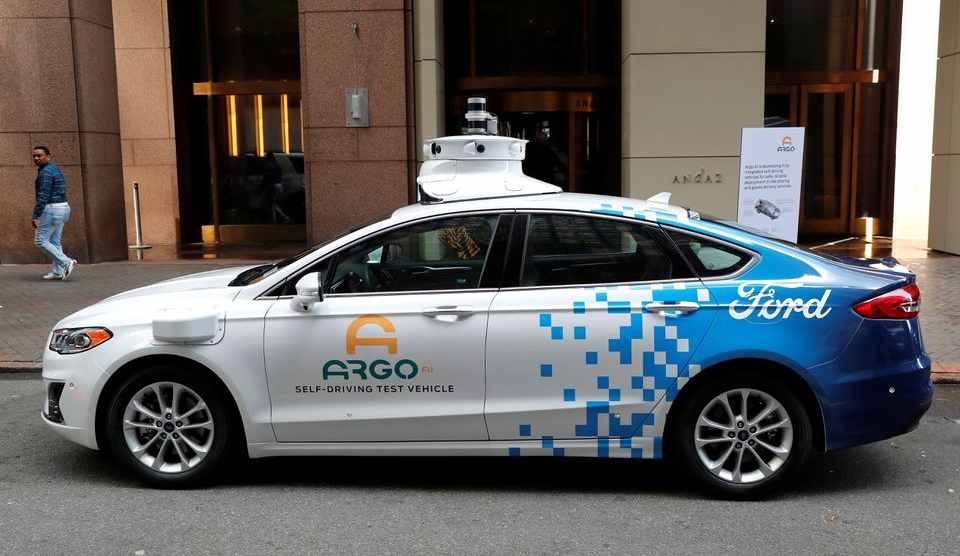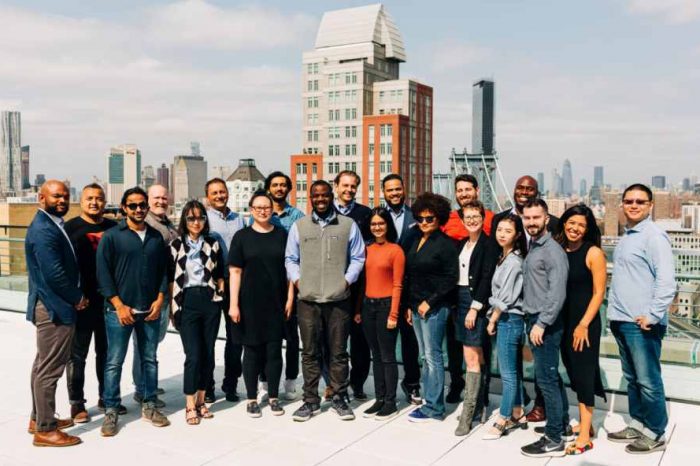Top tech startup news for Thursday, March 2, 2023: Ford, OnePlan, Neuralink, SpotDraft, Typeface, and Videocites

Good evening! Below are some of the top tech startup news stories for today Thursday, March 2, 2023.
London-based startup OnePlan raises $6M to digitally map venues for event planning
Event and venue platform OnePlan has closed $6 million to a new strategic investment led by Elysian Park Ventures and Verance Capital. The startup will use the fresh cash infusion to accelerate its plan to support live event venues, with a focus on the sporting venue market.
The funding news comes almost a year after the company raised secured £4.1M in Series A from Eppes Creek Ventures and Pembroke VCT. In conjunction with the funding, OnePlan also announced it has recently hired a Director in North America based in Los Angeles as the company continues to grow in the US.
Founded in 2019 by CEO Paul Foster, the London-based OnePlan provides proprietary groundbreaking 3D digital mapping tools that allow venue planners to expertly and seamlessly organize live events of all sizes – from marathons to music festivals, cycling races, football games, and triathlons.
Since its inception four years ago, OnePlan’s technology has been used to power over 25,000 of the world’s best live events at iconic venues in 107 countries, including Intuit Dome, home of the LA Clippers, Silverstone, as well as USA Triathlon. OnePlan is the Official Supporter of GIS Mapping and Digital Twin Software for the Olympic and Paralympic Games Paris 2024.
Commenting on the funding, Foster said: “We’re honored to have the support of Elysian Park Ventures and Verance Capital as we further our mission of revolutionizing the events and venues industry the world over. It’s heartening to see how our customers, at some of the biggest venues in the world, get immediate operational and security benefits from using OnePlan, along with significant commercial gains.”
With OnePlan, venues can leverage automated real-time data intelligence to plan for and measure crowd capacity and safety, arrival and exit flow optimal placement for stages or marquees, and even the right placement of refuse facilities.
Typeface emerges from stealth with $65M in funding for its generative AI app for enterprise content creation
ChatGPT has become a worldwide phenomenon, further pushing artificial intelligence (AI) into the mainstream. In less than three months, the OpenAI’s chatbot reached 100 million monthly active users in January, making it the fastest-growing consumer application in history.
Based on generative AI, ChatGPT could do virtually everything from writing poetry, and correcting coding mistakes with detailed examples, to generating AI art prompts. But ChatGPT is the only AI out there. New breeds of startups are building generative AI applications to supercharge personalized content creation work. One of these companies is Typeface, a San Francisco-based tech startup that’s building a generative AI application for enterprise content creation.
Typeface recently emerged from stealth with $65 million in funding to empower businesses to securely create exceptional, brand-personalized content faster and easier than ever before. The round was backed with investments from Lightspeed Venture Partners, GV (Google Ventures), M12 (Microsoft’s Venture Fund), and Menlo Ventures. Typeface is led by former CTO of Adobe, Abhay Parasnis, and a highly experienced team of AI, SaaS, and media technologists.
Generative AI platforms represent a major technological breakthrough that promises to create content at tremendous speed and scale. To successfully leverage its potential, enterprises must combine generative AI’s speed with a brand’s unique voice, audiences, and workflows to completely transform content creation while maintaining brand control.
Founded by CEO Abhay Parasnis, Typeface is an enterprise-grade generative AI application to supercharge personalized content. By uniting content velocity with brand personalization and control, any enterprise can now create exceptional, on-brand content faster and easier than ever before.
SpotDraft lands $26 million in Series A funding to streamline contracts for legal teams
SpotDraft is a New York-based startup that provides AI-powered Contract Lifecycle Management (CLM) solutions for high-growth startups and scaleups. Since its inception, SpotDraft’s Contract Lifecycle Management (CLM) has processed more than 1 million contracts and saved 1.5 million hours previously spent on tedious paperwork for customers such as Airbnb, Notion, Panasonic, Strava, and Chargebee.
To further grow its platform, SpotDraft announced today announced it closed $26 million in Series A funding. The round was led by Premji Invest, with participation from Prosus Ventures, 021 Capital, Arkam Ventures, Riverwalk Holdings, and 100x Entrepreneur Fund. SpotDraft will use the new cash infusion for product development and aggressive growth in North America, which the company identified as a key market.
Founded in 2017 by CEO Shashank Bijapur, Madhav Bhagat, and Rohith Salim, the 170-person SpotDraft team has decades of combined experience in the legal field as well as in building world-class products at companies like Google, Microsoft, Amazon, IBM, and Linkedin.
Shashank Bijapur co-founded SpotDraft in 2017 with Carnegie Mellon computer scientists Madhav Bhagat and Rohith Salim after working as a Wall Street lawyer in the U.S. The three co-founders met at a Diwali party in New York and moved back to India in 2016.
The 170-person SpotDraft team has decades of combined experience in the legal field as well as in building world-class products at companies like Google, Microsoft, Amazon, IBM, and Linkedin.
In a statement, Bijapur said: “The volume of work flowing through legal teams can often cause bottlenecks. Apart from dealing with legal work, today’s legal teams are expected to be leaders in everything from business strategy and governance to compliance and risk management.” Bijapur continued: “However, they’re often being asked to do all of this with one hand tied behind their backs. We like to think of what we are building as a co-pilot for legal teams – a system that acts as a strategic partner for in-house counsels by taking care of the repetitive tasks and thereby enabling them to focus on higher leverage activities.”
SpotDraft’s intuitive platform is built to be utilized not just by legal teams but also sales, marketing, human resources, business operations, and procurement. It leverages the legal team’s expertise without creating bottlenecks or wasting time on repetitive tasks.
FDA rejects Elon Musk’s Neuralink application to test brain chips in humans, citing safety risks
The U.S. Food and Drug Administration (FDA) has rejected Neuralink’s application to test brain chips in humans, Reuters reported, citing seven current and former employees.
According to the report, Musk has predicted on at least four occasions since 2019 that his medical device company, Neuralink, would soon start human trials of the wireless brain implant. Musk said the revolutionary implant will be able to cure a series of neurological disorders including memory loss, hearing loss, blindness paralysis, depression, insomnia, seizures, addiction, brain damage, and strokes, among others.
The application rejection has not been previously reported. In explaining the decision to Neuralink, the FDA “outlined dozens of issues the company must address before human testing, a critical milestone on the path to final product approval,” the staffers said.
The employees told Reuters that FDA’s major safety concerns “involved the device’s lithium battery; the potential for the implant’s tiny wires to migrate to other areas of the brain; and questions over whether and how the device can be removed without damaging brain tissue.”
According to CNBC, industry players who have been closely watching Neuralink’s development have long expected a collision between Musk and the FDA. For example, Kip Ludwig, former program director for neural engineering at the U.S. National Institutes of Health (NIH), said:
“Everybody in the industry was saying: ‘Oh my God, they’re going to run straight into a brick wall,’” Ludwig said of Musk’s bid for FDA approval. “Neuralink doesn’t appear to have the mindset and experience that’s needed to get this to market anytime soon.”
As you may recall in the summer of 2020, Elon Musk demonstrated Neuralink’s AI-powered brain implant in live pigs. During the demonstration, Musk showed the uses and applications of Neuralink with three pigs implanted with Link V0.9 chips. Musk told the audience that the implementation would one day be able to cure affectations of the human body such as blindness, and brain damage, and cure addictions.
NBA invests in Videocites as part of a $10M Series B funding led by Velocity Capital Management
The National Basketball Association (NBA) has partnered with AI-based video-tracking startup Videocites as it looks to take more ownership stakes in businesses that could benefit the league in a private equity push.
Videocites, which tracks clips across social media and social footprint created by fans, announced the NBA has closed its $10 million Series B funding round led by Velocity Capital Management, with participation from Series A investor Infront Sports & Media AG.
Videocites said it will use the new cash infusion to grow its global presence and recruit leading sales and business development professionals to expand its unique offerings to brands and content owners in the United States and Europe.
As part of the deal, Videocites will provide the league with more data and new tools to identify and leverage new revenue streams generated by fan-generated content and also enables it to use its technology to track how the NBA’s content is being used by fans on social media. The NBA has already been using Videocities to reach new and previously unidentified audiences, providing the NBA with greater insights into its global reach and brand exposure across social media.
Founded in 2014 by Aviad Louzon, Eyal Arad, Michael Bronstein, and Ze’ev Ganor, the Israeli tech startup initially introduced a collection of novel AI-based SaaS products for Video tracking and handling throughout the web and huge archives. Today, Videocites provides a groundbreaking analytics solution that reveals the true social impact created by fans and partners on social media, allowing the NBA to gain a greater understanding of how their brand is seen across the web.
Ford launches automated driving unit Latitude AI months after shutting down Argo.
Today, Ford announced the launch of Latitude AI, a new automated driving unit that the automotive giant said will expand on the company’s existing BlueCruise technology, which already offers hands-free highway driving on certain models. The Dearborn, Michigan-based Ford also added that it hired about 550 employees who previously worked at Argo AI for its new subsidiary.
“The expertise of the Latitude team will further complement and enhance Ford’s in-house global ADAS team in developing future driver-assist technologies, ultimately delivering on the many benefits of automation,” said Sammy Omari, Latitude’s CEO and executive director of ADAS technologies at Ford.
Just a week after the shutdown in November, Argo laid off 78 employees in Austin. However, Ford and Volkswagen said the affected Argo employees will be offered positions with the automakers. At its peak, Argo AI had more than 1,400 people across major U.S. cities.
Argo AI was founded in 2016 by Bryan Salesky and Peter Rander. The Pittsburgh, Pennsylvania-based Argo AI is an autonomous vehicle technology platform that is developing self-driving technology in partnership with leading automakers, including Ford Motor Company and Volkswagen Group. Before ceasing operation, both Ford and Volkswagen AG invested $2.7 billion in the company
According to the announcement, Latitude AI will be led by Ford’s executive director of ADAS Technologies, Sammy Omari. The automated driving subsidiary will be headquartered in Pittsburgh with additional engineering hubs in Dearborn, Michigan, and Palo Alto, California.




